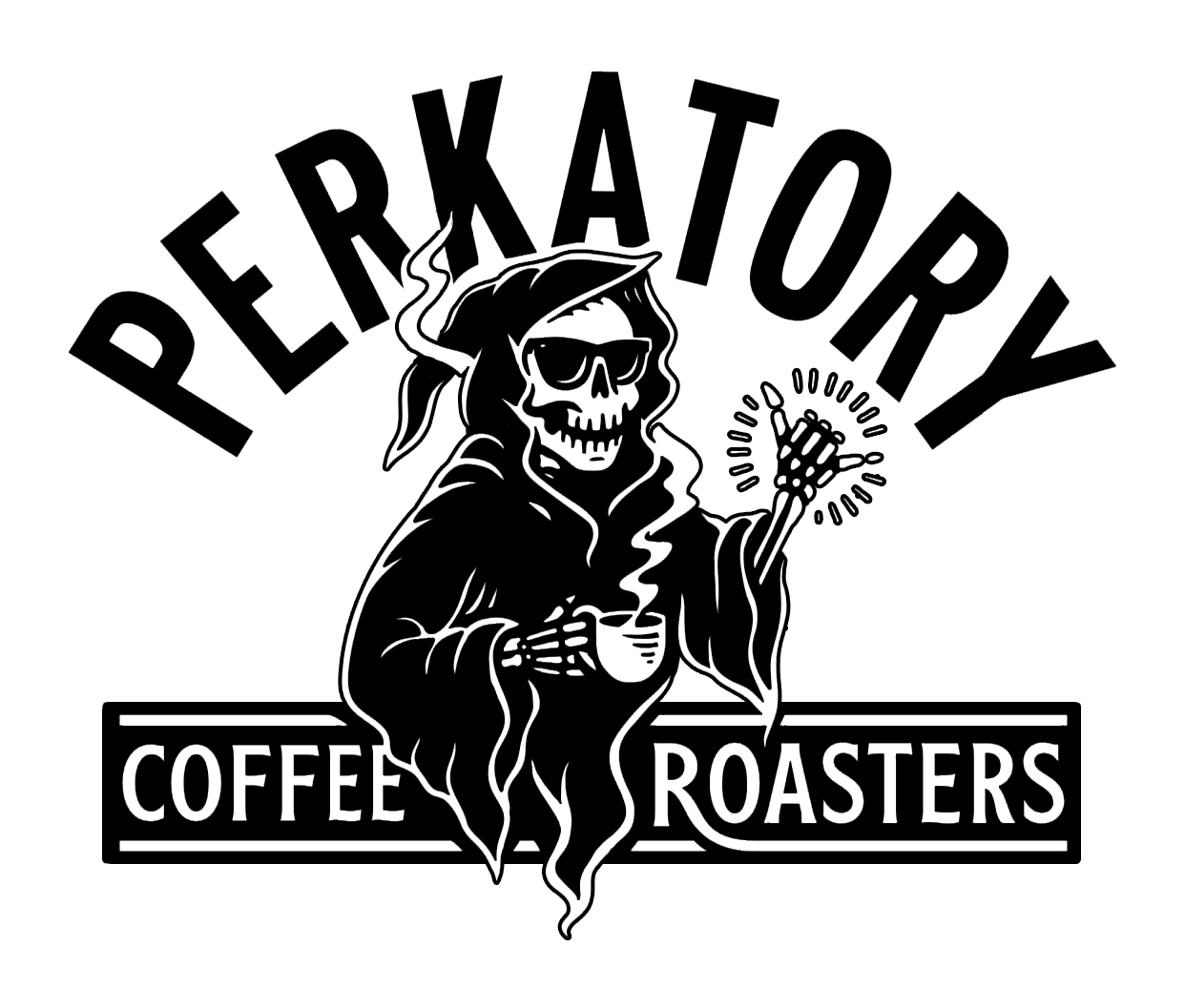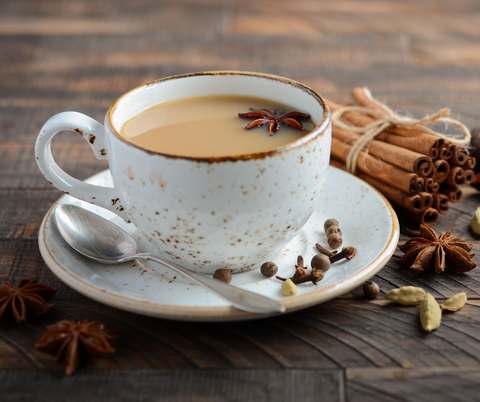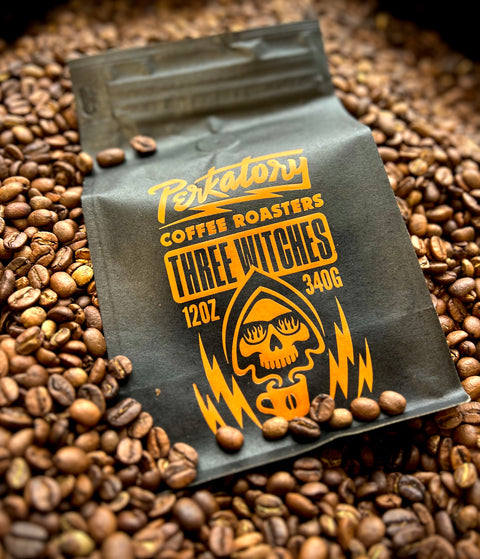When it comes to getting your daily dose of caffeine, many people turn to tea or coffee. But with so many options available, knowing which one will give you that much-needed energy boost can take a lot of work. In this blog, we'll take a closer look at two popular drinks - chai tea and coffee - and compare the caffeine content to help you make an informed decision.
What is Chai Tea?
Chai tea has been gaining popularity recently, especially in Western countries. This flavorful drink originated in India and is a mix of black tea, spices such as cinnamon, ginger, cardamom, clove, nutmeg, milk, and sweeteners like honey or sugar. Traditionally, chai tea is brewed using water and milk, giving it a creamy texture.
What is Coffee?
Coffee has been around for centuries and is one of the most popular beverages in the world. It is made from roasted coffee beans and ground and brewed with hot water to make a delicious cup of coffee. Coffee is offered in various forms, such as espresso, cappuccino, latte, and drip coffee.
Caffeine Content Comparison
Now let's get to the main question - how much caffeine is in chai tea vs coffee? The general rule of thumb is that an 8-ounce cup of coffee contains around 95mg of caffeine. However, the caffeine content can vary based on the coffee bean type and the brewing method. For example, espresso shots have a higher caffeine concentration than drip coffee.
On the other hand, chai tea contains caffeine from black tea and sometimes green tea. The amount of caffeine in tea can also vary depending on factors like steeping time, water temperature, and type of tea leaves used. However, on average, an 8-ounce cup of chai tea contains around 50mg of caffeine.
Does Chai Tea or Coffee Have More Caffeine?
Based on the above comparison, it is clear that coffee has more caffeine than chai tea. But before you decide solely based on caffeine content, there are a few other factors to consider.
Firstly, chai tea is often enjoyed with milk and sweeteners, which can add extra calories. On the other hand, black coffee is virtually calorie-free. So, coffee may be a better option if you're watching your calorie intake.
Secondly, caffeine affects people differently. Some may experience jitters and anxiety after consuming too much caffeine, while others may not be affected at all. So, knowing your caffeine tolerance and deciding based on that is essential.
Lastly, chai tea has several health benefits due to the added spices and antioxidants present in black tea. These include improved digestion, lower blood sugar levels, and reduced inflammation. Coffee also has some health benefits, such as improved brain function and a lowered risk of type 2 diabetes. So, it's not just about caffeine content but also the overall health benefits that should be considered.
Flavor Profiles of Chai Tea and Coffee
When choosing between chai tea and coffee, the caffeine content and flavor profile of each beverage matter. Chai tea and coffee have distinctively different flavor profiles that attract different types of drinkers.
Chai tea is known for its complex and rich flavor. The black tea base gives a robust and slightly astringent taste, while the blend of spices adds warmth, sweetness, and a hint of heat. The most common spices used are cardamom, ginger, and cinnamon, which contribute a sweet and spicy kick. When brewed with milk, chai tea has a creamy texture and smooth finish. The sweetness from any added sugar or honey helps balance the spices and tea, creating a harmonious blend of flavors.
On the other hand, coffee has a more straightforward flavor profile that is intensely aromatic, rich, and bold. The taste of coffee can vary significantly depending on the type of bean, roast level, and brewing method. It has a strong, slightly bitter, and acidic taste that is countered by a natural sweetness. Some coffee varieties could have chocolate, nuts, or fruit notes, while others might carry a smoky or earthy flavor. The texture could range from thin and light in drip coffee to creamy and thick in espresso.
In conclusion, chai tea offers a sweet, spicy, and creamy flavor, while coffee provides a strong, slightly bitter taste with a host of potential subtle notes. Your preference between the two depends on your flavor inclinations.
Cultural Significance of Chai Tea
Chai tea holds a significant place in many societies' culture and daily life, particularly in India, where it originated. In India, chai is more than a simple beverage; it is an integral part of daily rituals and social interactions. It's common to see chai vendors, known as 'chai wallahs', at every street corner, railway station, and marketplace, serving this iconic brew. Each region in India has its unique way of preparing chai, reflecting the diversity and richness of Indian culture.
Moreover, chai has a ceremonial role in Indian households, where it's often served to guests as an expression of hospitality. The process of brewing chai – from selecting the spices to brewing the tea and adding milk and sugar – is a cherished tradition passed down through generations. This ritualistic preparation adds a layer of cultural and emotional significance to the simple act of drinking tea.
Chai tea has gained global popularity in recent years, symbolizing the fusion of Eastern and Western cultures. Whether in the form of 'chai lattes' at trendy cafés or as a critical component in culinary recipes, the influence of chai has spread far beyond its Indian roots. Despite these new variations, the essence of chai as a comforting, flavorful drink that brings people together remains the same, proving its enduring cultural significance.
Conclusion
In conclusion, coffee has more caffeine than chai tea. However, other factors should be considered when choosing between the two drinks. Coffee may be the way to go if you're looking for a low-calorie option with a higher caffeine tolerance. But if you're looking for a healthier drink with added health benefits, then chai tea is a great option. It all comes down to personal preference and what works best for your body. So, next time you need a caffeine boost, consider these factors and choose the drink that suits you best.



